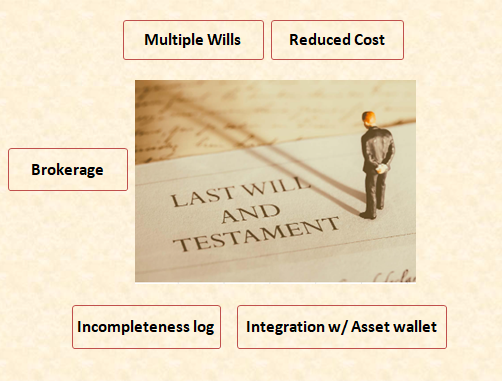
Brokerage and Reduced Cost
Integration w/ Wallet
Incompleteness Log
A last will and testament is a legal document that outlines your wishes for how your assets and affairs should be handled after your death. It gives you, the testator, control over who inherits your belongings, who cares for your dependents, and who manages your estate.
Here are some key points about last wills:
Distribution of assets: Your will allows you to specify who should receive your belongings, such as property, investments, and personal items. You can also name specific beneficiaries for each asset or divide your estate equally among multiple people.
Guiding for dependents: If you have minor children, your will can appoint a guardian to care for them after your death. You can also name a person to manage your children’s inheritance until they reach a certain age.
Estate management: You can nominate an executor in your will, who will be responsible for carrying out the instructions outlined in the document. This includes tasks like paying your debts, collecting your assets, and distributing them to the beneficiaries.
Avoiding intestacy: If you die without a will, your assets will be distributed according to your state’s intestacy laws. These laws may not reflect your wishes, and your loved ones may be faced with additional delays and legal complexities.
Here are some additional things to know about last wills:
They must be in writing and signed by the testator.
Some states have specific requirements for witnesses.
You can update your will at any time to reflect changes in your life circumstances.
It’s recommended to consult with an attorney to ensure your will is legally valid and accurately reflects your wishes.
Overall, a last will and testament is an important document that can provide peace of mind and prevent unnecessary confusion and conflict after your death